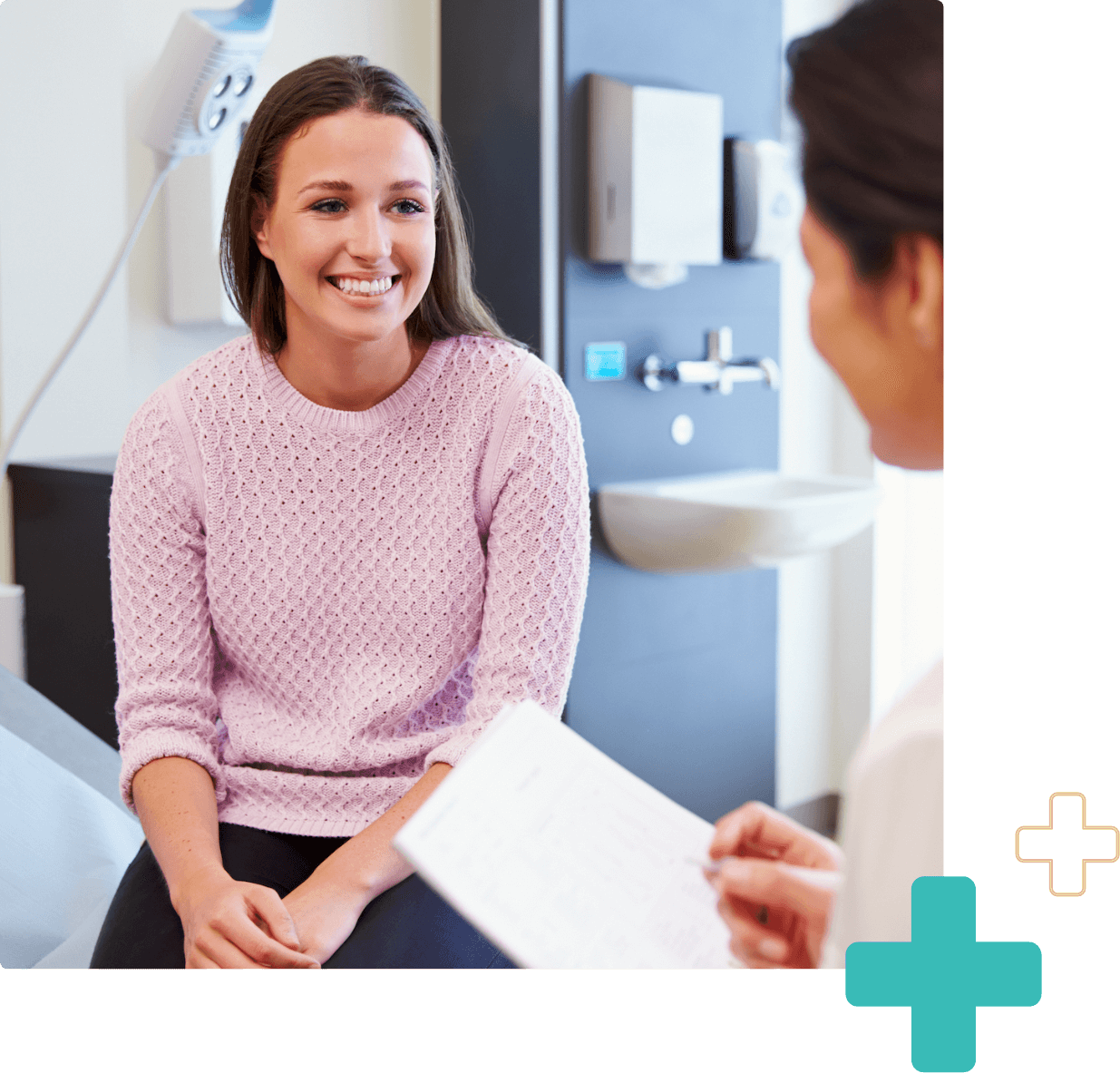Women’s Services
Women’s Services is the practice of medicine specializing in female reproductive health. Doctors diagnose and treat the female reproductive system issues that include the uterus, fallopian tubes, ovaries, and breasts.

Overview
During examinations, doctors give reproductive and other health services, including pelvic exams, Pap tests, cancer screenings, and testing and treatment for vaginal infections and other problems.
At Hillcroft Physicians, we focus on treating our female patients as soon as possible if they want to plan for a family. Early care is a great way to ensure women are at their healthiest if they decide to have children, so they are at ultimate health before conception, through the pregnancy, and after the child is born. Planned pregnancies with care focused on the mother’s health are optimal for both the mother and the child.
Gynecology Services
- Pap-s screens (cervical cancer screening)
- Annual breast exams and referrals for mammograms
- Contraception
- Pregnancy test
- Routine chemical urinalysis
- Screening and treatment for vaginal infections and related sexually transmitted diseases
- Diagnosis of pelvic disorders including ovaries and uterus such as ovarian cysts or masses, uterine fibroid tumors, vaginal bleeding or irregular menstruations, and missing periods.
- Postpartum care

Health Tips & Info
What are the reasons to see a doctor about gynecological issues?
You also may want to see a doctor if you are experiencing pain in the lower belly which could indicate a problem with your reproductive organs.
It is essential to examine if you have any changes in your monthly period, like unusual pain or bleeding. In the later years of the 40s or 50s, doctors can help you to determine if you might be going through menopause.
Doctors also help with questions about pregnancy, including how to avoid getting pregnant and care if you think you might be pregnant.
What can I expect during a gynecology visit?
Doctors will always conduct an internal pelvic exam. This is a simple, safe and quick procedure where the doctor will use an instrument called a speculum that widens the vagina and allows at your cervix located between the vagina and the uterus.
During the internal exam, the doctor usually performs a procedure known called a Pap smear. It involves the doctor collecting a sample of cells from the cervix with a Q-tip-like swap to check for infection; this is a pain-free procedure.
